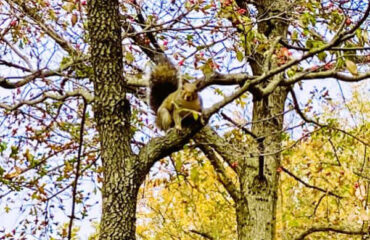Moving through hard phases with grace.
Dry, hot, arid… Deserts bring to mind harsh, bleak environments with rolling, endless sand dunes. There is little rainfall. Humans, plants, and animals need water to survive. How can life survive in a place where water is scarce? The heat, dust and sandstorms make it even more forbidding. It is easy to lose one’s sense of direction and get lost. Not many would want to trek through a desert.
Literature abounds with descriptions of desert-like phases in life. Everyone goes through life situations that seem harsh and overwhelming. We don’t choose these circumstances, but they happen to everyone. Many times, it has to do with grief and loss. These phases, when they happen, seem endless, with the horizon moving further and further away. All is lost or at least, it seems that way. We feel parched and miserable, thirsty for a sip of scarce water.
“Loss is part of life. If you don’t have loss, you don’t grow. – Dominick Cruz“
It makes sense to think of these phases as empty and meaningless. Like the lifeless emptiness of a desert. The truth, though, is that deserts teem with life that has adapted itself to the very conditions we consider harsh. Vegetation, reptiles, rodents, and insects live and flourish in deserts. The landscape consists of more than just sand dunes. There are ancient rock formations, seasonal lakes, rivers, and more.
Bigger animals enjoy the desert when there is more rainfall and migrate to other parts when it becomes drier. Entire human tribes have thrived in deserts since time immemorial. For others, traveling to a desert has been a homecoming of sorts. Many have found inspiration and produced remarkable works. Still more have found better versions of themselves amidst the empty grandeur of a desert.
“When you sleep in a house your thoughts are as high as the ceiling, when you sleep outside they are as high as the stars.” – Bedouin Proverb
When we experience loss of some kind, the instinct is to freeze and take cover. We hope against hope that this is a temporary experience and things will somehow become ‘like they were’ if we just hide somewhere. Denial is not a good way to handle loss or low phases. It prevents us from accepting our emotions, afraid to admit the loss even to ourselves. We stagnate, wallowing in the past which has no bearing on the present or who we can become if we move on.
“A flower blooming in the desert proves to the world that adversity, no matter how great, can be overcome.” – Matshona Dhliwayo
Instead of perceiving a loss as the end of your world, turn it over and study it. This is a painful process, but healing can only happen when you accept and experience your pain. Start walking through your desert slowly. Don’t be afraid to acknowledge your emotions and grieve. It helps you come out of hiding and start observing this new world full of resilient life. It also helps to recognize that many others are walking through their own deserts and learning to adapt. Some are doing it with more grace and strength than others. You can learn from them and apply that strength to your own experience. There are many others too. They are the ones who continue to wander through their deserts, constantly complaining. They are unable to understand and learn from it.
You can learn about beauty and solitude in a desert; from animals that rest in burrows when it is hottest and hunt at night. You conserve your energy by sheltering when it is hottest and emerge refreshed when it is cooler. You learn to sit out sandstorms instead of trying to walk through them. You look at the hardy vegetation and find water in the places they grow. What seemed like an endless emptiness seems like a sanctuary now. You learn to sit still and enjoy this stunning piece of earth.
“To hike out alone in the desert; to sleep on the valley floor on a night with no moon, in the pitch black, just listening to the boom of silence: you can’t imagine what that’s like.” – Nicole Krauss
The desert likes to play tricks on you. Sometimes, what seems real is only a mirage. Once you understand the nature of the desert, you learn to enjoy the beauty of its mirages too. It shows you the name of every star and how the sun blazes its way through the sky every day; how darkness falls after stunning sunsets. It teaches you perseverance and patience.
Once you find your stride, you hail other hardy trekkers, knowing that they too are learning to appreciate this new phase in their lives. Sometimes you invited to sit by cozy fires at night, listening quietly while they reminisce. Even those who have already crossed the desert are there. They have returned to help weary trekkers. They talk from the experience of a life well-lived. Someone might even offer a horse or camel to make your journey easier.
One day, when you least expect it, you see a thin green line on the horizon. Is it another mirage? You keep walking, but the green becomes trees. You hear the gurgle of water and the cool breeze blowing through. An oasis. You sit in the shade enjoying the sounds of human bustle and sipping cold, clear water. The desert has taught you an important lesson: How could you enjoy this oasis unless you experience the desert? This part of your life, which began with loss and grief, has changed you in wonderful ways and prepared you to move on. The desert may have been a harsh teacher but it has helped you find your way to a far better place.
“What makes the desert beautiful is that somewhere it hides a well.” – Antoine de Saint-Exupéry




